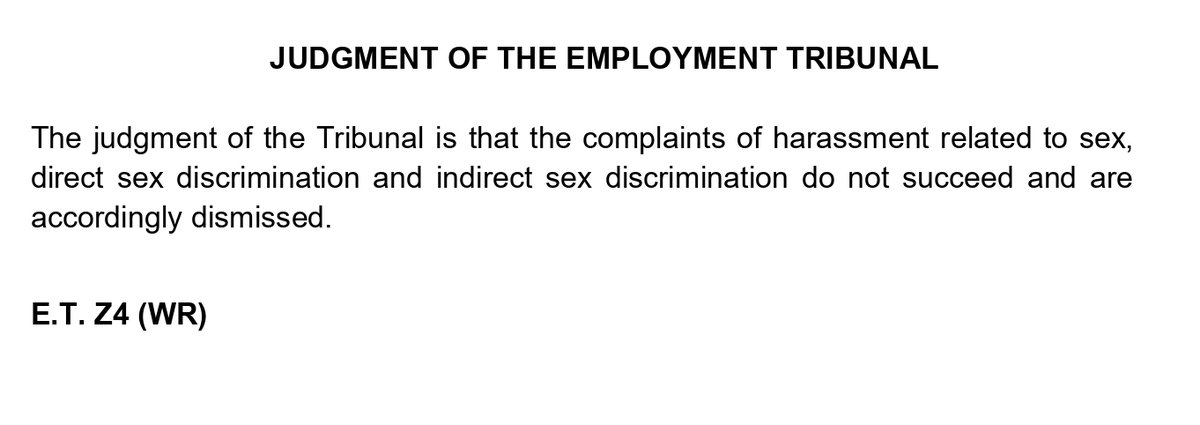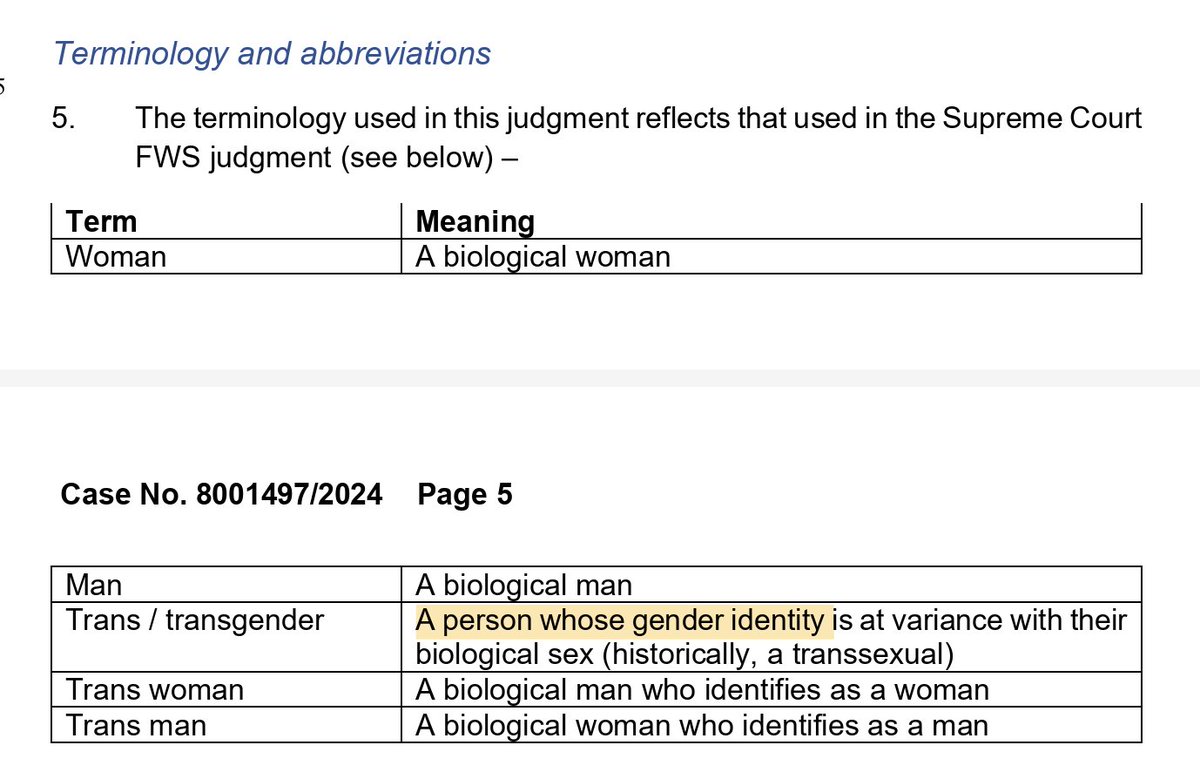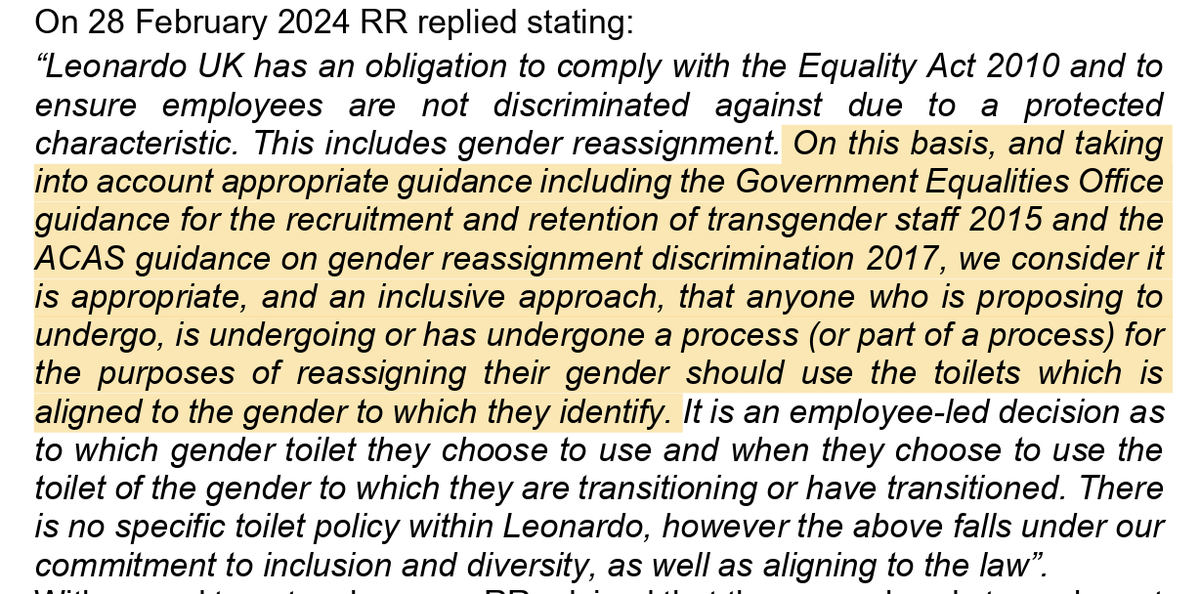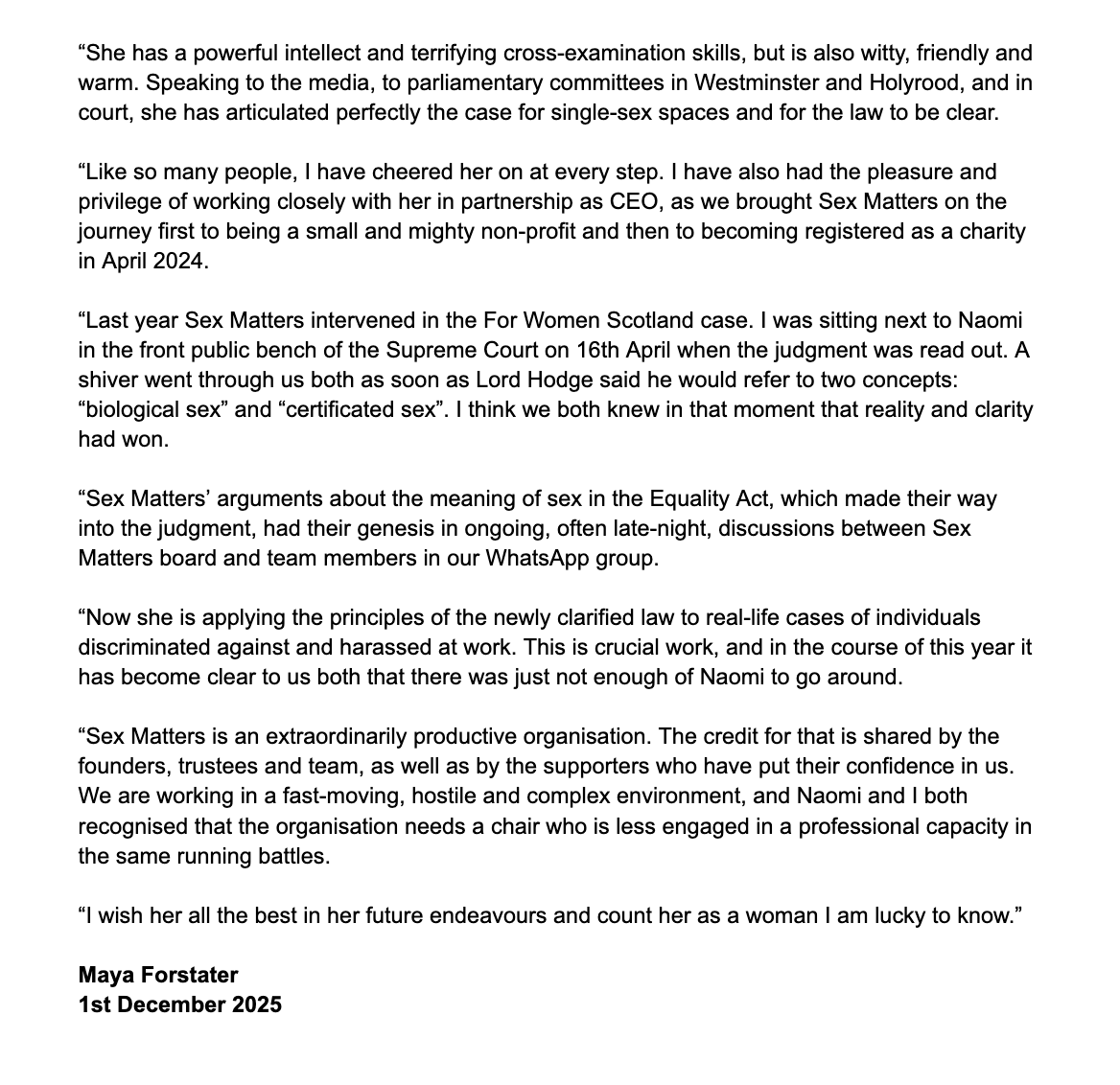Is this book "A practical guide to transgender law" just passing as a serious law book?
It makes big claims to distinguish between unfounded views of the current law and the "true state"...
amazon.co.uk/Practical-Guid…
It makes big claims to distinguish between unfounded views of the current law and the "true state"...
amazon.co.uk/Practical-Guid…

As the foreword notes Robin Moira White has an obvious personal interest in laws and rules that would make it difficult for women to say no sharing single sex spaces with males
Nevertheless claim to have set out the law as it currently is, and not just wishful thinking....
Nevertheless claim to have set out the law as it currently is, and not just wishful thinking....

Barrister Naomi Cunningham of @legalfeminist thinks it is awful and has published an unsparing point-by-point review which sets out why ...
legalfeminist.org.uk/2021/09/02/a-p…
legalfeminist.org.uk/2021/09/02/a-p…

At this point one would expect legal twitter to jump in with some debate, because what the law says matters.
But of course no not on this topic
But of course no not on this topic
There is so much wishful thinking in the book.
As Naomi notes the authors dismiss the binding judgment of the High Court in Corbett v Corbett in favour of, what? ... hairstyles and clothing
As Naomi notes the authors dismiss the binding judgment of the High Court in Corbett v Corbett in favour of, what? ... hairstyles and clothing

They slip between concepts all over the place.
Of course M&S don't say "affirmed gender" or "acquired gender" or inquire after anyone's intimate operations (that would be inappropriate)
Of course M&S don't say "affirmed gender" or "acquired gender" or inquire after anyone's intimate operations (that would be inappropriate)

What M&S actually say is that they don't have men and women's changing rooms anymore but allow people to use the changing rooms they prefer.
Women and girls who want to try on underwear without sharing space with males - sorry you have to shop somewhere else.
Women and girls who want to try on underwear without sharing space with males - sorry you have to shop somewhere else.
But then they say that if your answer to that question is involves sticking with clear sex definitions then you have any rights and employers can fire you.
So best keep quiet and put up with it.
So best keep quiet and put up with it.

That comes from my case of course.
The book seems to have been rushed out before the appeal judgment in order to include their preferred, detailed discussion of the first instance judgment...
... which is now of course out of date
The book seems to have been rushed out before the appeal judgment in order to include their preferred, detailed discussion of the first instance judgment...
... which is now of course out of date

The authors have released an update (although it is very hard to find)
Out with the old. In with the new...
translegalproject.org/post/a-practic…
Out with the old. In with the new...
translegalproject.org/post/a-practic…

But the conclusions on belief barely change. It turns out the threshold for a protected belief is *much* lower than Whit and Newbegin thought but still they are advising that any expression of gender critical belief is likely to be grounds for termination 

Then there is this misinterpretation of the law and of my judgment.
"holding the belief is protected rather than manifesting it".... this is the kind of thing people say on Twitter.
You wouldn't expect it from two discrimination lawyers
"holding the belief is protected rather than manifesting it".... this is the kind of thing people say on Twitter.
You wouldn't expect it from two discrimination lawyers

In other words the manifestation of gender critical beliefs is protected just as much as the manifestation of other beliefs such Judaism, Catholicism, ethical veganism or any other protected belief (including gender ideology).
That is if your employer has a policy that disadvantages someone manifesting their belief then that could be indirect discrimination (but there is a defence to that that the policy may be a proportionate means to a legitimate aim)
& there we get to the crux of it... is it legal to exclude anyone who says male people are male, in situations where sex matters, from the ability to earn a living?
Or should employers consider both the rights of transgender people & others when those rights come into conflict?
Or should employers consider both the rights of transgender people & others when those rights come into conflict?

• • •
Missing some Tweet in this thread? You can try to
force a refresh





















